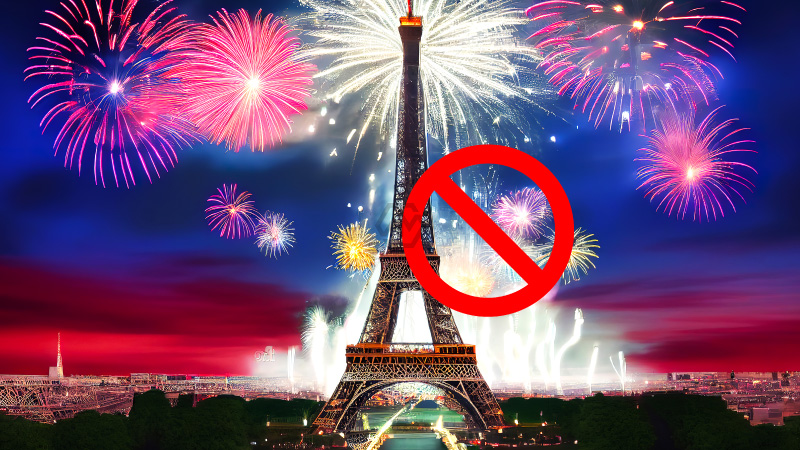Due to recent protests that resulted in violent altercations with the police, fireworks are not permitted in France in advance of Bastille Day.
To prevent the sale, ownership, and transportation of any “pyrotechnic articles” for the July 14 festivities, Parisian authorities enacted a decree. The incident started on June 27 when police in Nanterre fatally shot Nahel Merzouk, a 17-year-old teenager.
Bastille Day
Thousands of protesters descended on the streets around the country, and riot police were attacked with fireworks as the demonstration grew in intensity. 3,300 people were detained due to the violence, 808 people were hurt, and an estimated €1 billion worth of damage was done.
Initially stationing 1,200 riot police and gendarmes in and around Paris, Interior Minister Gérald Darmanin later added 2,000 more.
- France bans fireworks before Bastille Day due to violent protests.
- Protesters clash with police, causing 3,300 detentions, 808 injuries.
- 260,000 people signed a National Assembly petition demanding brigade dissolution and police abuse.
He announced the nationwide deployment of 40,000 officers, including RAID and GIGN counterterrorism teams, by June 29. British citizens were advised against visiting France during the disturbances by the UK Foreign Office.
The riots were President Emmanuel Macron’s greatest crisis since the Yellow Vest rallies against high living costs, high fuel prices, and economic inequalities in late 2018. Merzouk was slain by an officer who had previously belonged to the contentious Brav-M motorcycle brigade, which was used to prevent looting and violence during protests.
On the website of the National Assembly, nearly 260,000 individuals signed a petition in April demanding for the dissolution of the brigade and claiming instances of police abuse.
In the same month, Macron provided himself a 100-day window during which he could travel around France and meet with citizens to refocus his presidency.



